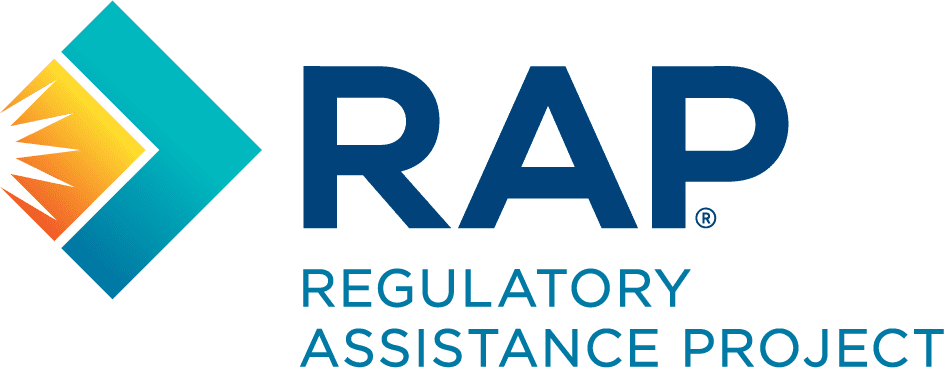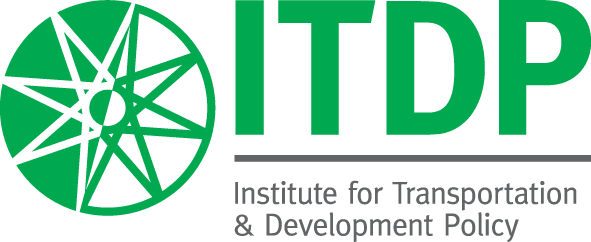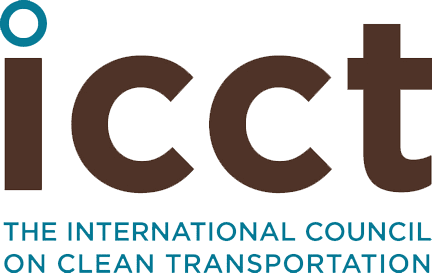COP28 closed with all countries agreeing to triple renewable energy and double energy efficiency by 2030–what the International Energy Agency demonstrates must happen to keep global warming below 1.5 degrees Celsius. At the end of this year, we will have reached the midpoint in this critical decade for climate action–we must accelerate progress in 2024. Given their trusted relationships with decision-makers in the highest-emitting countries, the Crux Alliance members are uniquely positioned to help countries deliver on the COP28 targets. We asked the CPCs to share some of the work ahead that will speed up the most impactful policies and slash emissions in 2024 and beyond. Their technical support for smart policy design will not only cut planet-heating emissions, it will bolster health, prosperity, and resilience for communities around the globe. Learn about these exciting plans and projects already underway below.
Here’s to driving forward climate solutions in the year ahead!
Joe Ryan, Executive Director at Crux Alliance
Appliances

Appliance efficiency is a tried-and-true measure that can deliver outsized results for consumers and the climate. In 2024, CLASP is intensifying work in the top five emitting countries in the appliances sector, pursuing national, regional, and municipal activities in China, the EU, India, the UK, and the U.S., where CLASP experts will support governments in the design of best practice policies. Decarbonization and electrification remain priorities across these regions, with policies for heat pumps and gas stoves forthcoming in Europe and parts of the U.S. National policies expected in China this year would avoid a massive 1.48 Gt of carbon emissions through 2040. Opportunities for innovation include policies for water heaters in the U.S. and demand-responsive ACs in India and China. CLASP also plans to expand work in other top 20 emitters, including Bangladesh, Brazil, Indonesia, Nigeria, and Pakistan. To prime Brazil for international leadership on appliances in the lead-up to G20 this year and COP30 next year, CLASP will launch a new utility partnership to introduce more efficient products into the market, ultimately facilitating the adoption of more stringent performance standards. Finally, CLASP will tailor its landmark analysis “Net Zero Heroes: Scaling Efficient Appliances for Climate Change Mitigation, Adaptation & Resilience” for country implementation, helping governments advance appliance affordability solutions like subsidies and incentives to reach Net Zero Hero targets.
Buildings

2024 will be a consequential year for the building sector as building emissions continue to rise despite a significant increase in global commitments to decarbonize this sector. GBPN’s initiatives this year aim to reverse this trend—and fast.
Global
GBPN is an advisory board member for the newly launched United Nations Buildings Breakthrough Agenda, a commitment by 27 countries (and growing) to make near-zero emissions and climate resilient buildings the new normal by 2030. This agenda-setting work will provide a critical global framework for action that GBPN will leverage to further engage the top 20 emitting countries on work that will turn commitments into achievements.
India
On New Year’s Eve, the Bureau of Indian Standards appointed GBPN local expert partner Ashok B Lall Architects to incorporate GBPN’s Healthy Low-Carbon Housing guidelines into the National Building Code and Indian Standards for Affordable Housing. This is a significant win that will reduce emissions and improve thermal comfort and resilience for millions of people. GBPN will also complete a compliance platform for the residential building energy code for Gujarat, continue work with RAP to develop living labs for affordable housing, and work directly with developers on decarbonization roadmaps.
Indonesia
This month Indonesia will launch its national Green Building Roadmap, developed by GBPN Indonesia and Gadjah Mada University in collaboration with the Ministry of Public Works and Housing, Ministry of Energy and Mineral Resources (MEMR), and Ministry of Home Affairs. In 2024, GBPN will work with MEMR on a National Action Plan for Low Carbon Buildings and with selected local governments to implement the road map at the subnational level. The road map’s implementation is projected to avoid 37 million tons of CO2 by 2030.
China
GBPN will support four provinces in implementing their low-carbon construction policies, providing expertise and capacity building to incorporate zero-carbon building targets in the 15th Five-Year Plan.
Industry

Green lead markets can play a central role in steering heavy industry on a path to climate neutrality. By creating demand, these markets can complement other policies for industrial transformation. But, so far, such green lead markets don’t exist. To establish them requires clear definitions and standards assigning CO2 emissions to a product or service. Consumers can use this information to identify a climate-friendly version of a product. Increasing demand for green materials and products then allows industry to adapt its production accordingly.
Agora has published numerous studies with proposals to strengthen the demand for green products. In Germany, the government carried out stakeholder consultations to define methods for determining the carbon footprint of materials and products. In autumn 2023, the Ministry of Economic Affairs agreed to a method for defining CO2 standards and a labeling system for steel and cement, forming the basis for the development of a public procurement framework. This is an important first step.Individual companies have announced new products for 2024 corresponding to a “low CO2“ standard. Agora Industry’s work this year includes translating the defined standard into a public procurement logic. After all, the public sector is one of the largest consumers of steel and concrete for construction and infrastructure projects. Promoting this approach at the EU level will be a key element of an event in Brussels this spring. At the same time, Agora Industry is actively supporting working groups at the OECD, IEA and the UN’s International Deep Decarbonisation Initiative to set standards for green products which will be relevant at the global level, including for major emerging economies such as China, India and Brazil.
Power

In 2024, China is steering its economy toward carbon peaking by 2030 and aligning with climate targets in the 15th Five-Year Plan (2021-2025). The country is expected to set new records for renewables build-out, and several key laws are forthcoming this year. The renewables rollout can facilitate power sector reform and increase the scope of spot- and cross-regional power trading. China still faces challenges at the provincial level, requiring more targeted energy transition strategies. This year, Agora will support the transition by providing research on green power trading and increasing awareness about effective market design.
Renewables expansion coupled with economic slowdown may lead to decreased coal consumption and peaking of carbon emissions several years earlier than 2030. This offers a unique opportunity to advance policies that support stronger integration of renewables and a just phase-down of coal. Agora will continue to facilitate the exchange of knowledge and best practices between European and Chinese decision-makers. Agora is also working on a “Just Transition Index,” which will compare the transition away from coal in Chinese coal producing areas and former coal reliant regions across the EU. The index includes cross-sectional data on coal production, regional economic indicators, labor, and more.
SHURA – Agora’s primary partner in Turkey
Agora Energiewende also hosts the secretariat of the International Network of Energy Transition Think Tanks (INETTT), and its partner in Turkey, SHURA Energy Transition Center, is gearing up for an exciting year of turning plans into reality. In 2023, Turkey outlined significant targets for renewable energy, energy efficiency, electrification, new technologies, digitalization, and green finance. The focus in 2024 will be on transforming these goals into action plans, implementing supportive policies in both the electricity sector and end-use sectors, and making necessary market and regulatory reforms. To inform this policy setting, the SHURA research team is diligently working on a set of reports covering topics such as renewable energy supply agreements, just transition, impact of electric vehicles on the grid and smart charging, battery storage, green hydrogen and more. Since SHURA was founded in 2018, almost all additional installed power in Turkey (18 gigawatts) has come from renewables, translating into a reduction of 24 Mt CO2e emissions annually. As of 2023, renewable energy accounted for 55 percent of Turkey’s installed power (106 GW). SHURA’s objective for this year is to contribute to this forward progress with in-depth analysis and engagement activities.

This year, RAP is focusing on several policy initiatives to drive a more efficient and just decarbonized future:
Electrify buildings and transportation
In Europe, RAP will socialize a policy framework needed for electric vehicle-to-grid solutions and a cost analysis of heavy-duty electric truck charging across identified roadways. RAP’s technical analysis, informed by modeling from ICCT, will inform plans for new charging infrastructure in Europe’s largest vehicle markets. Identifying and modeling the most relevant benefits of smart charging is proving effective for persuading decision-makers to expand Europe’s smart charging infrastructure.
Encourage distributed energy resources (DERs)
Power sector regulators in India are keenly interested in deploying DERs to achieve the government’s goal of growing clean energy generation to 500 GW by 2030. In September 2023, RAP’s India program launched a digital Knowledge Centre—a resource hub for India-specific policy briefs, articles, case studies, and presentations—featuring a policy brief on DERs. In 2024, the Centre will be updated with new resources that can empower India’s decision-makers with up-to-date information on how to advance an equitable and efficient clean grid.
Reduce emissions from fossil fuels
In several U.S. states, RAP will advance regulations that limit nitrogen oxide and greenhouse gas emissions from new water heaters and HVAC equipment. New equipment standards will limit harmful emissions and decrease reliance on fossil gas across these end uses, ultimately transforming the market so only low- or zero-emitting water heaters and HVAC systems are installed in U.S. buildings.
Urban Mobility

2024 has gotten off to a busy start for ITDP! Already this month, ITDP published a report with the World Bank demonstrating the climate and economic benefits of active mobility, as well as new research in the Compact Cities Electrified series highlighting the emissions and cost reduction opportunities in the U.S. ITDP also announced the City of Tianjin, China, as the winner of the 2024 Sustainable Transport Award for its efforts to enhance transport infrastructure and reduce private vehicle use, and will spotlight the city’s innovations throughout the year.
With this year marking election cycles in many of ITDP’s key regions—from Mexico to Indonesia—ITDP will continue to build relationships with decision-makers on the ground to elevate sustainable mobility issues both locally and nationally. This includes the release of more data-based knowledge products that can influence policy in the sector. In particular, ITDP will advocate for greater investment in public transport infrastructure with the release of the third edition of its BRT Standard and supporting resources.
ITDP will also release the much-anticipated Atlas of City Transport platform, a digital map and tool that will allow decision-makers and practitioners to access key transport and mobility indicators for hundreds of global cities.
Vehicles & Fuels

2024 is shaping up to be an exciting and busy year across programs at ICCT. ICCT will continue to foster collaboration between countries to tackle some of the largest remaining challenges to global electric vehicle adoption, such as strong and clear commitments from industry and government, electric vehicle infrastructure, battery supply chain, and green development. Building on the success of ICCT’s Crux-funded work in Latin America, ICCT plans to intensify efforts in the region with a renewed focus on Chile and Mexico.
ICCT also plans to unveil its inaugural Global Health Study in 2024. This study will model global, national, and urban-scale health impacts from emissions spanning 2020 to 2040. By quantifying the transport sector’s overall contribution to the global health impacts of air pollution, the report will greatly advance the field’s understanding of the transport sector’s contribution to global health impacts of air pollution, and the potential to reduce these via policies for road vehicles.
ICCT looks forward to sharing the results of the study with Crux Alliance partners.

